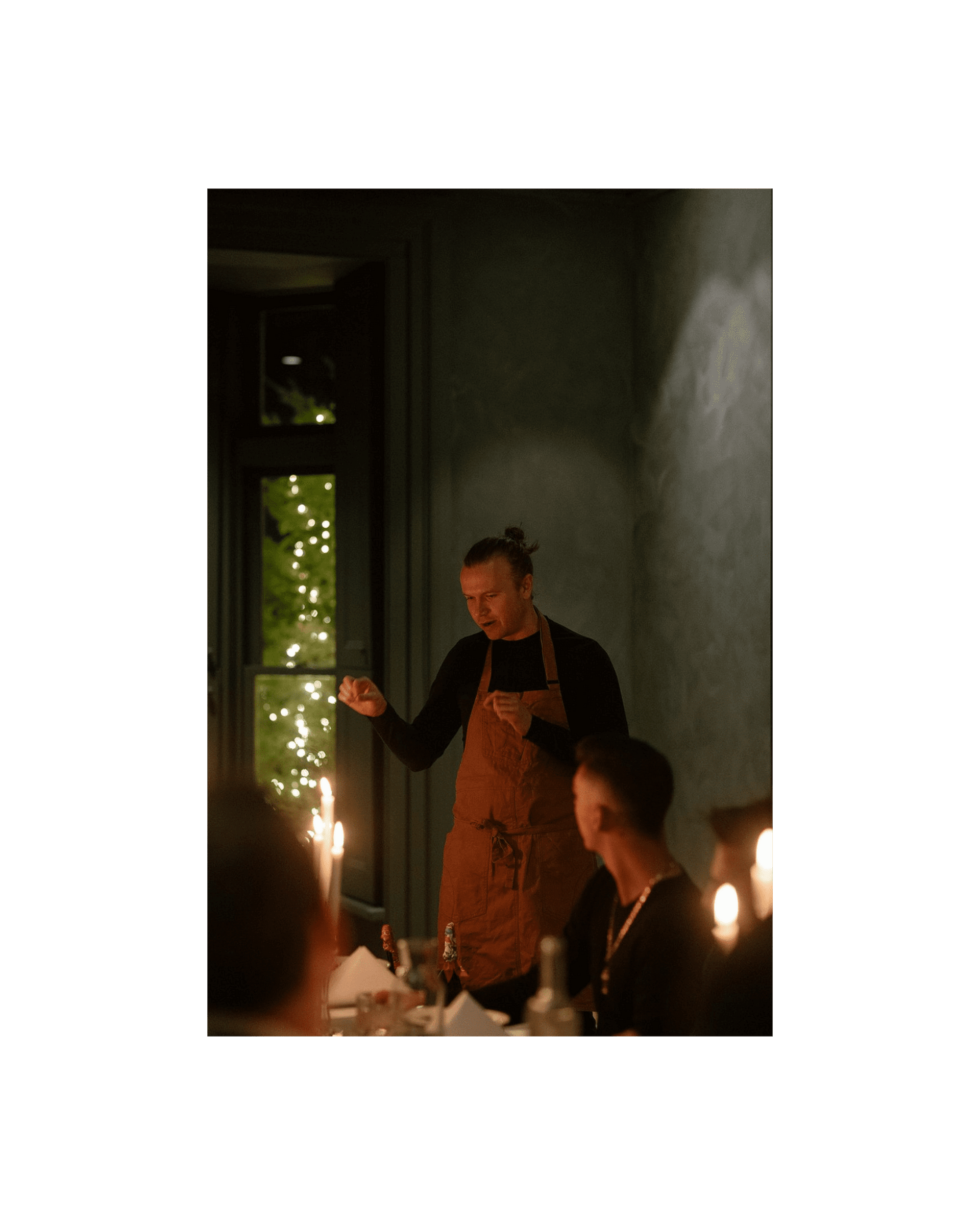FEATURED CHEFS - CHRIS LOCKE
•
If you’re ever looking for something to chat with Chris Locke about, simply say the word, “fermentation.” “If people are genuinely interested and want to know more, I will talk forever,” he says with a laugh. “I usually have to cut myself short.”

DECEMBER 22, 2022
-
HOST: CHEF CHRIS LOCKE
It’s no surprise then, that Locke, who is currently executive chef at Toronto’s Marben & The Cloak and has been featured by national media outlets like Global News and The Globe and Mail, describes his food as “fermentation led.”
“I like to use fermented ingredients to bring about flavor, but also to reduce waste,” he explains. “You often bring about something that’s better than the original.”
Fun fact: According to Locke, the reason our brains register fermented things as delicious is because the microbes involved in the fermentation process have already done much of the digesting work for us, which is a great thing for our gut health.
“It’s a trickery of our mind that tells us to eat more of them,” he says. “Our saliva glands start pumping, and we have cravings for these foods.” This passion for fermentation ties closely to another hallmark of Locke’s cuisine: Locally sourced, in season ingredients.
“If you’re eating something with pineapple on it, it’s probably not something I made,” says Britain-born, Toronto-based chef who moved to Canada over a decade ago. “There’ll be no avocado toast, either.” Instead, he focuses on food that “belongs here, grows here.”
Locke is deeply interested in food systems, specifically the ways that we can create sustainable ones.
“It’s increasingly evident that our food systems are very fragile,” he explains. “There’s a lot of food insecurity, desertification, drought, and natural disasters. There are a lot of issues with how food is grown, sold, transported and consumed.” Growing food locally, he says, can have a real, positive impact on the environment. Locke is also an enthusiastic forager, and his finds often show up on his menus. In fact, staghorn sumac - that bush with red cone-shaped blossoms on it you probably see everywhere - will be featuring in a dish at his upcoming Piena at Lune. Full disclosure: Because he’s been busy, and it was a wet fall, he wasn’t able to gather his own this year. Instead, he’ll be using some picked last year.
Another unique feature of a meal cooked by Locke is his “explorations,” which are interludes between courses where you’re treated to a mini-flight of fermented foods, like a tasting of miso in its raw form.
“Chefs often cook in a way where there’s no need for guests to taste ingredients in their raw form because they’re familiar,” he says. “A risotto, you don’t need to give somebody the rice.”
With something potentially unfamiliar like miso, or garam made from fermented meat, or a vinegar made from fruit or vegetables, it can be eye-opening for diners to experience those ingredients in their essential form, and learn about how they’re made.
“There’s a big backstory to these ingredients,” says Locke, who loves nothing more than educating people about them. On the menu for Lune, for example, he’s got a squid garam (essentially a fish sauce) that’s been fermenting for a year.
“It’s had a year of enzymatic activity to make this sauce, which is one aspect of a dish that has 12 components,” he says. “There’s a lot of history in those ingredients. It’s not as simple as something that was grown and then heated.” Think of everything that’s happened in the year that it was there, all those enzymes quietly working away…
“Especially for lacto-ferments, there are millions of microbes in there. It’s like having a huge brigade of cooks doing work while you sleep, changing one ingredient into something different,” he says.
“You end up with these really beautiful, unique ingredients that you really didn’t have to work for.”
Photography: Melissa Sung
Editing: Sarah Laing
Art Direction / Styling / Design: Lune


















